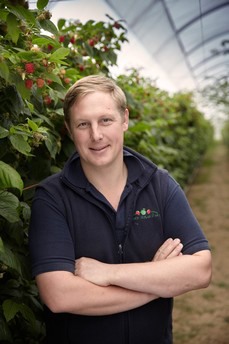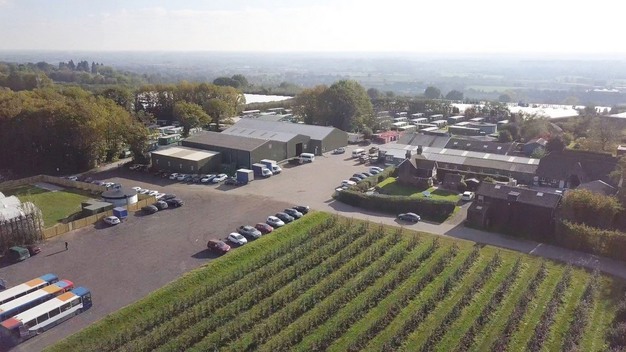The UK soft fruit season had a late start pretty much across the country, and this was no different at Clock House Farm in Maidstone, Kent, where they started picking strawberries around 10 days later than normal.
 "We started picking raspberries from the heated production in April. The quality of the strawberries and raspberries is looking good, volumes are normal, but we are not anticipating any 'bumper' yields for 2023," said Oli Pascall, Managing Director at Clock House Farm. "The slow ripening of the berries in spring has delivered some high-quality produce, but there has definitely been a later start to the season. In summary, maybe not high volumes, but the harvest will represent a really good quality crop."
"We started picking raspberries from the heated production in April. The quality of the strawberries and raspberries is looking good, volumes are normal, but we are not anticipating any 'bumper' yields for 2023," said Oli Pascall, Managing Director at Clock House Farm. "The slow ripening of the berries in spring has delivered some high-quality produce, but there has definitely been a later start to the season. In summary, maybe not high volumes, but the harvest will represent a really good quality crop."
Oli said that demand has been stable, Wimbledon does deliver a surge for strawberries each year, but demand is fairly stable beyond that.
"As a producer, we are facing a myriad of challenges right now. We are confident that the labor supply to bring in the harvest is now resolved, but this is at an inflated price. We've been hit by increasing costs across the supply chain - for example, fuel, energy, fertilizer, transport, etc - which results in a hike in production costs. But while retailers have increased the in-store price, sadly, this is not reflected in the cut that the grower receives ."

Some of the cost increases are difficult to limit, but Clock House Farm have established their own containerized plant propagation business – Linton Growing – to reduce the reliance on imported plants and ensure access to superior quality plants that deliver in terms of yield, size, flavor, and disease resistance. This also reduces the carbon footprint by sourcing domestically grown plants rather than clocking up 'food miles' via imported goods.
"Our ground-breaking river heated production is now in full operation and reaping great rewards, both in terms of energy savings but also in improving our environmental responsibility credentials."
 For more information:
For more information:
Oli Pascall
Clock House Farm
Tel.: +44 1622 743955
[email protected]
clockhousefarm.co.uk/
